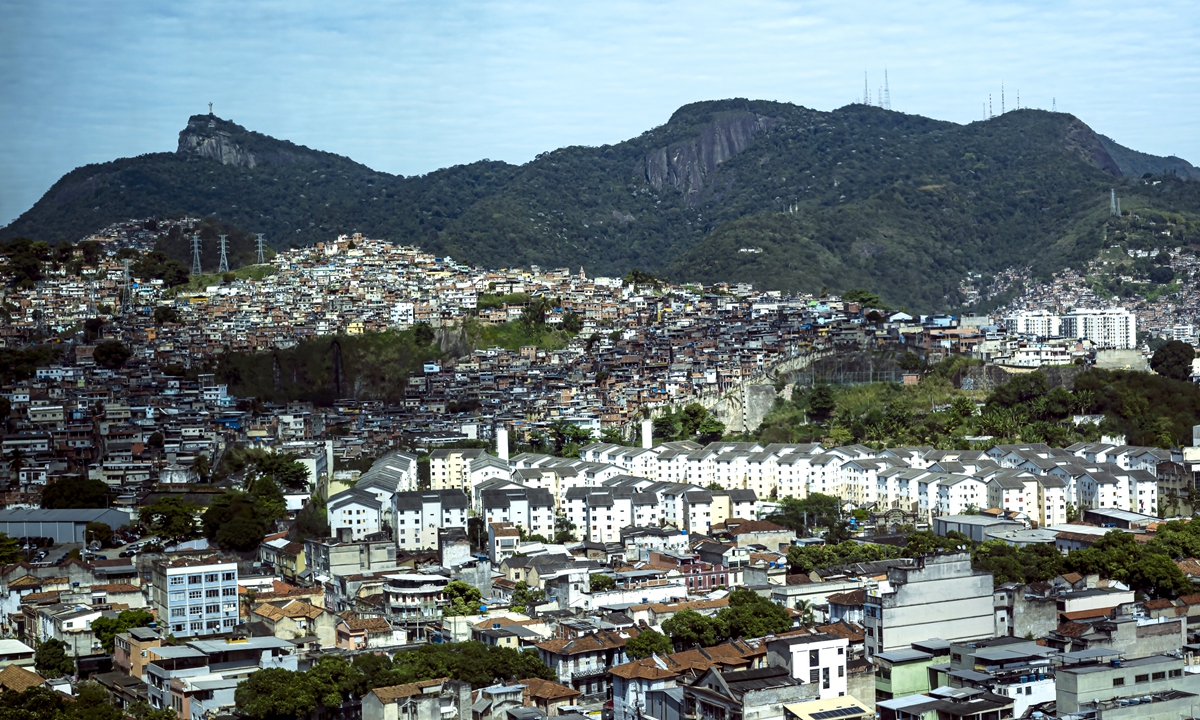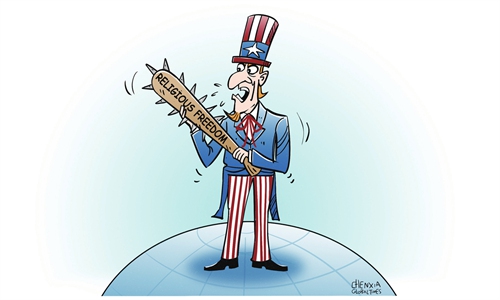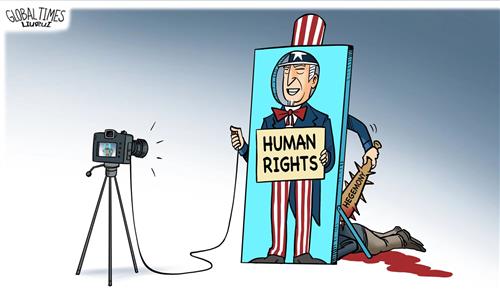
The cityscape in Rio, Brazil. Photo: VCG
After a 26-hour flight from Beijing, crossing the continents of Asia and Africa and the Atlantic Ocean, I finally arrived in Rio de Janeiro to attend the First China-Latin America and Caribbean States Roundtable on Human Rights. Known as the "City of God," Rio was once Brazil's capital and remains one of the most economically developed regions in South America. As the plane approached Rio, I couldn't help but wonder what this city, which has hosted two World Cups, one Olympics and is known for globally reputed Sambadrome, would be like.However, what surprised me as the plane descended through the clouds was how densely packed the favelas were. While Hong Kong's most expensive villas sit on hillsides, in Rio, those occupying the city's most scenic hills, with ocean views and prime locations, are actually slums. On the way to the hotel, riding through the city in a taxi, I caught glimpses of the crude houses stretching over the hills, while opulent villas, adorned with vibrant graffiti, lay at their feet. I witnessed poverty and wealth, chaos and order, two parallel worlds coexisting peacefully. It reminded me of the vibrant world in the animated film Rio, as well as the dark, gritty realities depicted in the movie City of God.
In fact, experienced reporters had already advised me before my trip, "Don't carry a bag, dress modestly and don't carry too much cash - just enough in case you get mugged." Rio is one of Brazil's most violent cities. According to data from Statista, there were 2,962 shootings registered in Rio in 2022 alone, with most crimes originating in the favelas. In Rio, close to 1.5 million people - around 23-24 percent of the population - live in favelas. The city has more favela residents than any other Brazilian city.
Despite the dangers, the Brazilian government has taken steps over the years to improve the infrastructure in the favelas, integrating them into the city's planning. In January, the country announced that it would henceforth classify poor urban communities as "favelas and urban communities" rather than using the previously stigmatized term "subnormal agglomerates."
Poverty is one of the main causes behind the formation of the favelas, and hunger is another major challenge the country faces. Addressing hunger has been a top priority for President Lula's administration. In his first term, which began in January 2003, Lula made eradicating hunger and poverty a priority, launching the "Zero Hunger" strategy.
This year, on July 24, while attending the G20 Global Alliance against Hunger and Poverty Task Force Ministerial Meeting in Rio, Lula announced that the alliance would be formally established at the G20 Leaders' Summit in November.
The 2024 edition of the United Nations report The State of Food Security and Nutrition in the World showed that the number of people in Brazil facing severe food insecurity fell by 85 percent, a reduction from 8 percent of the population to just 1.2 percent.
The Bolsa Família (Family Allowance) program has also achieved significant success in diminishing socioeconomic disparities in Brazil. According to the National Household Sample Survey, by the end of 2023, one in five Brazilian households received the benefit, with the percentage of homes with at least one beneficiary of the program reaching 19 percent, a historic high.
In terms of human rights principles and practical experience, China and Brazil share many similarities. China has consistently upheld the right to survival and development as the most fundamental human right. Through decades of continuous progress, China has eradicated absolute poverty by the end of 2020. Latin American countries, through increased investment in people's livelihoods and the improvement of social security systems, have also improved the living conditions of their citizens. The successful practices of China and Latin America demonstrate that promoting human rights through development is an effective approach.
In stark contrast, the US and its allies, under the guise of "human rights," blatantly interfere in the internal affairs of other nations. This self-centered view of "human rights" overlooks the actual needs and interests of other countries, failing to recognize that the right to development is a fundamental human right for many developing countries. In the global human rights framework, there is no one-size-fits-all model.
At 6 am, on Barra Beach, the golden sunlight shines on a group of young people surfing and playing volleyball. Their sparkling sweat and determined expressions perhaps best embody why people's sense of fulfillment, happiness and security truly represent human rights.
The author is a reporter with the Global Times. Lu Yang contributed to this story. caosiqi@globaltimes.com.cn




